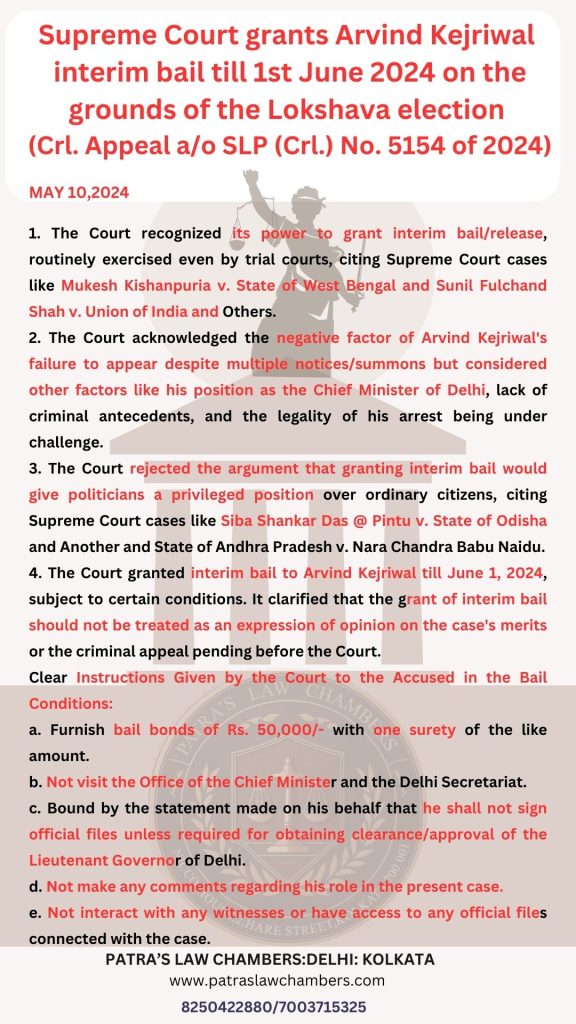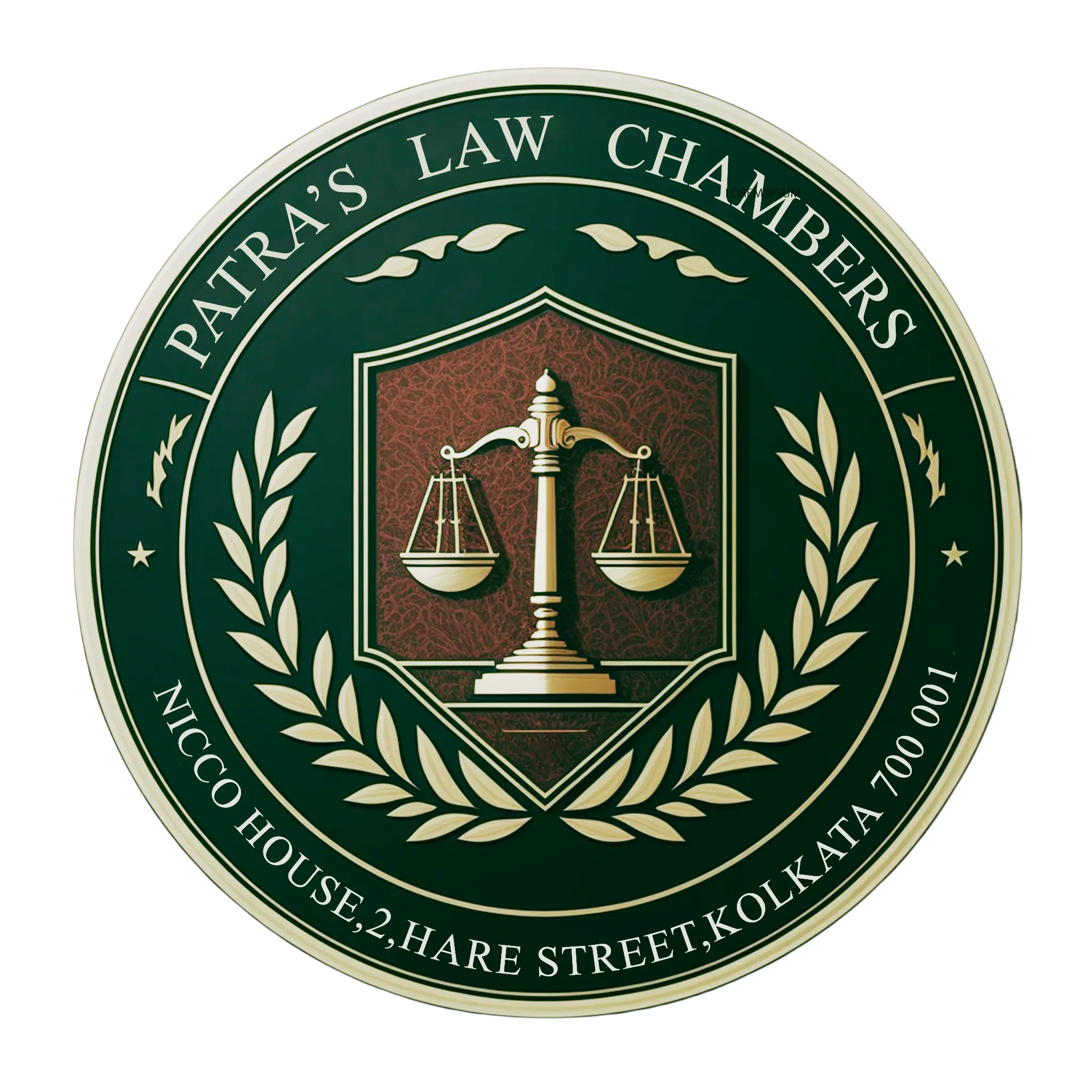- The Court is hearing an appeal filed by Arvind Kejriwal, challenging his arrest by the Directorate of Enforcement (DoE) on 21.03.2024 in connection with a money laundering case.
- The Court has heard arguments from both sides, but the hearing is yet to conclude, and a considered decision will take time.
- In view of the prolongation of proceedings, the Court had put the parties on notice that it may examine the question of granting interim bail/release.
- The DoE had registered a case (ECIR No. HIU-II/14/2022) on 22.08.2022, under a predicate offence registered by the Central Bureau of Investigation (CBI) on 17.08.2022 (RC No. 0032022A0053).
- The CBI case was registered on the complaint of the Lieutenant Governor of the Government of NCT of Delhi and on the directions of the Ministry of Home Affairs, Government of India.
- The DoE has filed multiple prosecution complaints, and the CBI has filed chargesheets, but charges have not been framed yet.
- The Court recognized the intervening factor of the ongoing 18th Lok Sabha General Elections, which is a significant and important event in a national election year.
- The Court rejected the prosecution’s argument that granting interim bail/release would give politicians a privileged position over ordinary citizens, citing the peculiarities of the case and the surrounding circumstances.
- The Court referred to the case law on the power to grant interim bail/release, which is routinely exercised even by trial courts.
- Mukesh Kishanpuria v. State of West Bengal (Supreme Court) held that the power to grant regular bail includes the power to grant interim bail, particularly in view of Article 21 of the Constitution.
- Sunil Fulchand Shah v. Union of India and Others (Supreme Court) observed that parole by way of temporary release can be granted by the government or its functionaries in certain cases, and that courts can direct temporary release in extreme and deserving cases.
- Dadu @ Tulsidas v. State of Maharashtra (Supreme Court) held that the restriction on suspending sentences under the NDPS Act does not affect the court’s power to grant parole or furlough, even in cases where an appeal has been dismissed.
- Athar Pervez v. State (Delhi High Court) discussed the power to grant interim bail in NDPS cases, relying on Siddharam Satlingappa Mhetre v. State of Maharashtra and Others and Shri Gurbaksh Singh Sibbia and Others v. State of Punjab.
- The Court noted that interim bail is commonly exercised, and the present case is not an exception.
- The Court acknowledged the negative factor of Arvind Kejriwal’s failure to appear despite nine notices/summons but considered other facets, including his position as the Chief Minister of Delhi and a leader of a national party, the lack of criminal antecedents, and the legality of his arrest being under challenge.
- The Court referred to judgments relied upon by the DoE: a. Anukul Chandra Pradhan v. Union of India and Others (Supreme Court) upheld the curtailment of the right to vote for certain categories of persons, including those subjected to preventive detention. b. K. Ananda Nambiar and Another v. Chief Secretary to the Government of Madras and Others (Supreme Court) held that members of the legislature cannot claim freedom from arrest, and their detention does not violate privileges. c. State of Maharashtra v. Anand Chintaman Dighe (Supreme Court) allowed an appeal against the grant of bail to an accused convicted under the Terrorist and Disruptive Activities (Prevention) Act, 1987.
- The Court rejected the argument that its reasoning results in granting privileges or special status to politicians, citing Siba Shankar Das @ Pintu v. State of Odisha and Another (Supreme Court), which deleted a condition restraining political activities, and State of Andhra Pradesh v. Nara Chandra Babu Naidu (Supreme Court), which permitted participation in the political process.
- The Court granted interim bail to Arvind Kejriwal in connection with ECIR No. HIU-II/14/2022 till 1st June 2024, subject to the following conditions:
a. Furnish bail bonds of Rs. 50,000/- with one surety of the like amount.
b. Not visit the Office of the Chief Minister and the Delhi Secretariat.
c. Bound by the statement made on his behalf that he shall not sign official files unless required for obtaining clearance/approval of the Lieutenant Governor of Delhi.
d. Not make any comments regarding his role in the present case.
e. Not interact with any witnesses or have access to any official files connected with the case.
The grant of interim bail will not be treated as an expression of opinion on the case’s merits or the criminal appeal pending before the Court.


